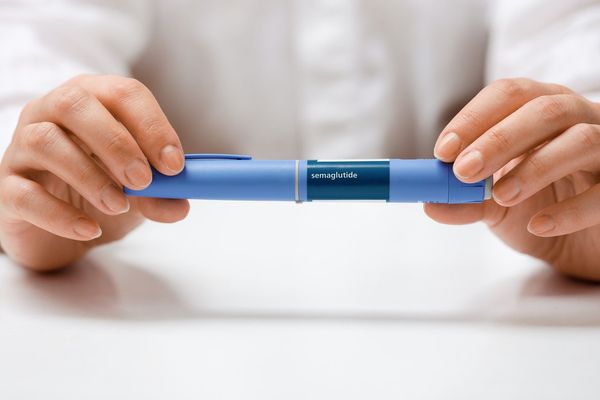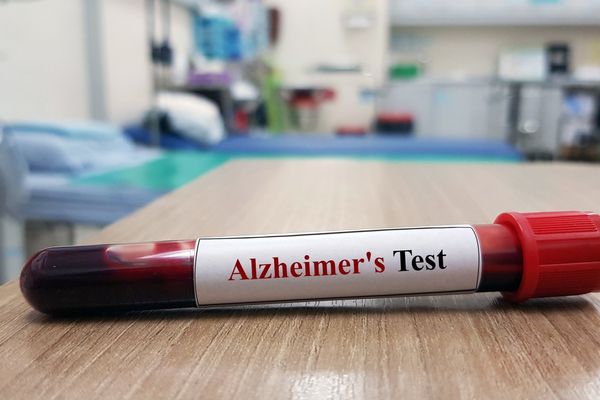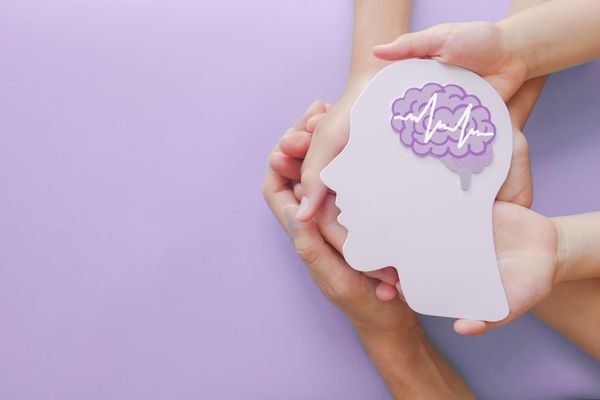Someone in the world develops dementia every three seconds. And chances are you know someone who has either been personally affected by dementia or has a family member or friend who has been affected by dementia. By 2050, the number of people living with dementia is predicted to triple to 152 million.
Despite its widespread impact, there are stigmas and lack of knowledge about dementia, which lead to inaccurate assumptions about its effects on the person and their family. To understand more about dementia and Alzheimer's disease, we talked to Jill Lesser, president of WomenAgainstAlzheimer's.
"This is a women's crisis," Lesser said. "Two-thirds of women get Alzheimer's and more than two-thirds of women act as caregivers for people with Alzheimer's." We need to band together to better understand what is happening.
Lesser knows firsthand what the caregiving role is like—she has been caring for her mother who was diagnosed with Alzheimer's in 2007. As in many cases, Lesser's mother's path to diagnosis took time. The earlier someone receives a diagnosis, the more time they have to implement lifestyle treatments and plan for care later on. The early years are crucial, Lesser says.
So, what do those early stages of Alzheimer's look like? The main signs of dementia are:
- Loss of memory
- Problems with thinking, planning and language
- Failure to recognize people or objects
- Personality and mood changes
Lesser says women often share these symptoms with their health care provider and are told that the symptoms are a normal part of aging. Sometimes they are told it's "menopause brain."
"Signs of dementia are not a normal part of aging," Lesser reminds us. And if you think your signs are not being taken seriously, you need to see another health care provider.
Let your health care provider know you want a neurological exam to evaluate your memory, language, visual perception, attention, problem-solving, movement, senses, balance, reflexes and other areas. If your health care provider doesn't do this, again, see someone else. A PET scan may be administered to detect patterns of brain activity and determine whether amyloid protein is clumping together to form plaques in the brain, a sign of Alzheimer's disease.
While signs of dementia can happen to anyone, Lesser reminds us that adapting healthy lifestyle habits helps in prevention, similar to preventing heart disease or diabetes.
Here are five ways you can reduce your risk of developing dementia.
Look after your heart. Smoking, high blood pressure, high cholesterol, diabetes and obesity all damage the blood vessels and increase the risk for having a stroke or a heart attack, which could contribute to developing dementia. These problems can be prevented through healthy lifestyle choices and should be treated effectively if they occur.
Be physically active. Physical activity and exercise are powerful preventive medicines, helping you control your blood pressure and weight, as well as reducing the risk of type 2 diabetes and some forms of cancer. Evidence suggests that some kinds of physical activity can reduce the risk of developing dementia. The good news is that getting active makes us feel good, especially when we're active with friends and family.
Follow a healthy diet. Food is fuel for both brain and body. We can help both to function properly by eating a healthy, balanced diet. Some evidence suggests that a Mediterranean-type diet, rich in cereals, fruits, fish, legumes and vegetables, can help reduce the risk of dementia. While more studies are needed on the benefits of specific foods or supplements, we do know that eating lots of foods that are high in saturated fat, sugar or salt is associated with a higher risk of heart disease and is best avoided.
Challenge your brain. By challenging the brain with new activities, you can help build new brain neurons and strengthen the connections between them. This may counter the harmful effects of Alzheimer's disease and other dementia pathologies. By challenging your brain, you can learn some great new things. How about learning a language or taking up a new hobby? Check out bebrainpowerful.org for an awesome 30-day challenge.
Enjoy social activities. Social activities may be beneficial to brain health because they stimulate our brain reserves, helping to reduce our risk of dementia and depression. Make time for friends and family. You can even combine your activities with physical and mental exercise through sports or other hobbies.
If you or someone you love seems to be acting differently and displays any signs of dementia, take it seriously. To learn more, visit usagainstalzheimers.org.
- 5 Dos and Don'ts on Your Anti-Alzheimer's Menu ›
- You & Your BrainA Collaboration of HealthyWomen, Prevention & Women’s Alzheimer’s Movement at Cleveland Clinic ›
- Alzheimer's Disease Prevention ›
- What's the Link Between Menopause and Alzheimer’s? - HealthyWomen ›







